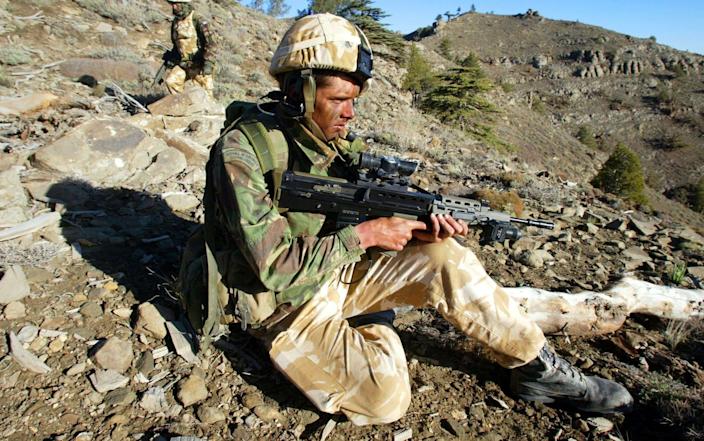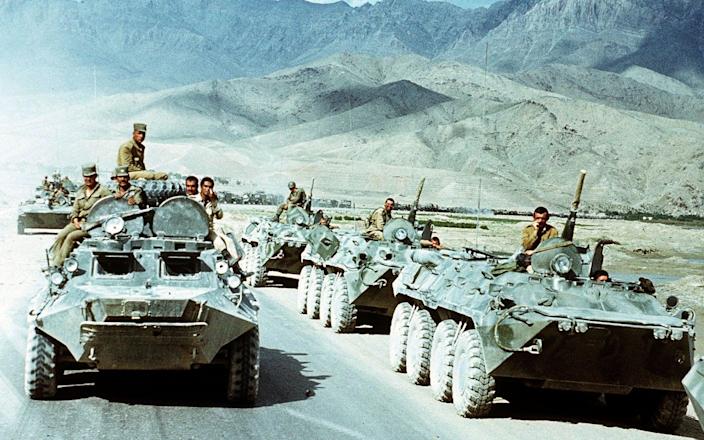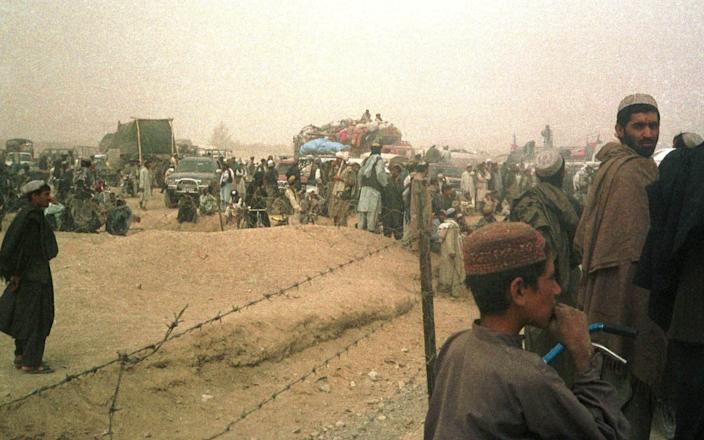The First Anglo-Afghan War was arguably the greatest military humiliation the West has ever suffered in the East. During the infamous Kabul retreat, which began on January 6, 1842, of the 18,500 who left British cantonment, only one British citizen, the surgeon Dr Brydon, reached Jalalabad six days later. An entire army of what was then the most powerful military nation in the world completely destroyed by ill-equipped tribes.
A year later, Reverend GR Gleig wrote a story of Britain’s first disastrous, costly and completely preventable entanglement with Afghanistan. It was, he writes, “a war started for no reason, waged with a strange mixture of temerity and timidity, ended after suffering and disasters, without great glory attached either to the ruling government or to the great body.” of the troops that led it. No advantage, political or military, was gained with this war. Our eventual evacuation of the country was like the retreat of a defeated army.
For many years the mass massacre of the Kabul Retreat had a chilling effect on further adventures. As one veteran George Lawrence wrote just before Britain entered the Second Anglo-Afghan War thirty years later, “a new generation has emerged which, instead of learning from the solemn lessons of the past , is willing and eager to drag us into the business of this turbulent and unhappy country … Although military disasters can be avoided, a breakthrough today, however successful it may be from a military point of view, will not be lacking to prove to be just as politically pointless … The disaster of the Kabul Retreat should forever remain a warning to future statesmen not to repeat the policies which bore such bitter fruit in 1839-1842. “

Even until October 1963, when Harold Macmillan passed the post of Prime Minister to Alec Douglas-Home, he allegedly called the young man to his office and gave him reassuring advice: “My dear boy,” he said. said, looking at his newspaper, “As long as you don’t invade Afghanistan, you’ll be fine.” Sadly, John Major seems to have neglected to give Tony Blair the same advice. In 2001, shortly after the disaster of September 11, Blair joined forces with Bush to invade Afghanistan again.
What followed – our fourth war in Afghanistan – was in many ways a repeat of the first. The same tribal rivalries and the same battles were fought in the same places 170 years later under the guise of new flags, new ideologies and new political puppeteers.
The same towns were filled with troops speaking the same languages, and they were again attacked by the same high passes. Either way, the invaders thought they could come in, make a regime change, and get out in a few years. In either case, they couldn’t help but be drawn into a much larger conflict.

Not only was the puppet ruler that the British tried to install in 1839, Shah Shuja ul-Mulk, from the same Popalzai sub-tribe as Hamid Karzai, his main opponents were Ghilzais, who today constitute the bulk of the infantry of the Taliban. Mullah Omar was a Ghilzai, as was Mohammad Shah Khan, the resistance fighter who oversaw the massacre of the British army in 1841.
These parallels are frequently pointed out by the Taliban themselves: “Everyone knows how Karzai was brought to Kabul and how he sat on the helpless throne of Shah Shuja,” they announced in a little press release. after coming to power.
Then as now, the poverty of Afghanistan made it impossible to tax the Afghans to finance their own occupation. Instead, the cost of maintaining order in such inaccessible territory has depleted the occupier’s resources.


Over the past twenty years, the United States has spent more than $ 100 billion a year in Afghanistan: it has cost more to maintain Marine battalions in two districts of Helmand than the United States has provided. to the entire Egyptian nation in annual military and development aid.
In both wars, the decision to withdraw troops was based on factors of little relevance to Afghanistan, namely the state of the economy and the vagaries of politics in the country.
No one was more aware of these strange parallels than Hamid Karzai himself. When I first published my book The First Anglo-Afghan War, The return of a king, he called me in Kabul, asked me about the details over several dinners in his palace, and dramatically changed his policies to ensure he never repeated the mistakes of his ancestor Shah Shuja.
In a leaked email posted in The New York Times after Wikileaks, Hilary Clinton blamed her reading of the book for a cooling of relations between Kabul and the White House during the Obama years.
Unfortunately, his successor, Ashraf Ghani, has learned nothing from the lessons of history. He had none of Karzai’s diplomatic skills and must bear much of the responsibility for the collapse of his own regime: Ghani’s impatience, rudeness and arrogance alienated many tribal leaders and he totally lacked the charm and politeness that made Karzai a much more popular country and an acceptable figure. As we have seen, very few were willing to die to keep Ghani in power.
Meanwhile, the long-term strategic picture is grim. Few people will trust American or NATO promises now, and we have offered a major propaganda victory to our enemies around the world.
In 2009, I met tribal elders from the village of Gandamak, where British troops fought their last fight in 1842. Already then, a decade before this weekend’s debacle, they could see how the winds were blowing. “All Americans here know their game is over,” said one senior. “It is only their politicians who deny this. “
“These are the last days of Americans,” his friend said. “Then it will be China.
Return of a King: the Battle for Afghanistan 1839-42, the third part of William Dalrymple’s Company Quartet, is published by Bloomsbury.
Post Disclaimer
Disclaimer: Britain’s Fourth Afghanistan War is a replay of the infamous first retreat 170 years ago - Views expressed by writers in this section are their own and do not necessarily reflect Latheefarook.com point-of-view